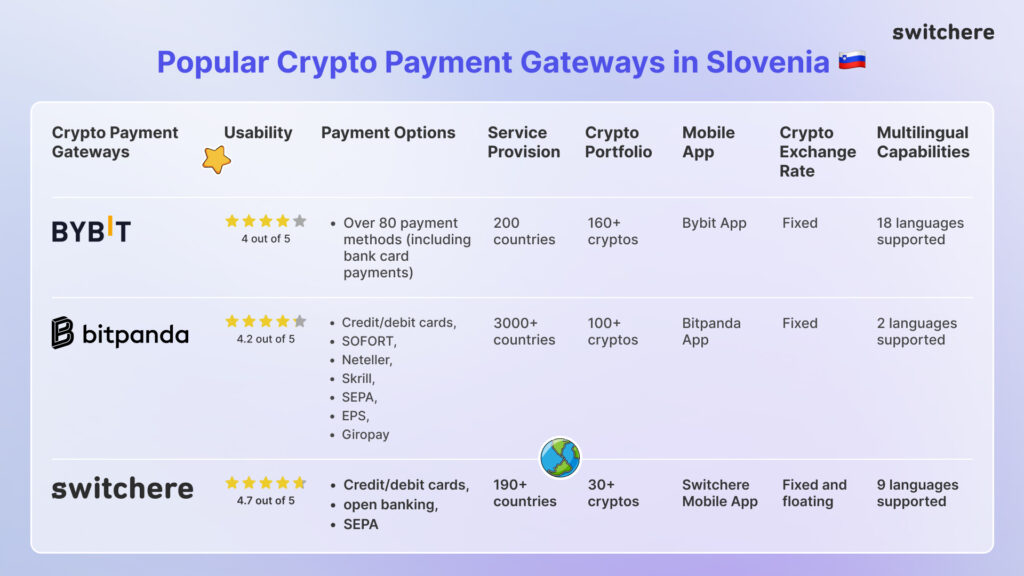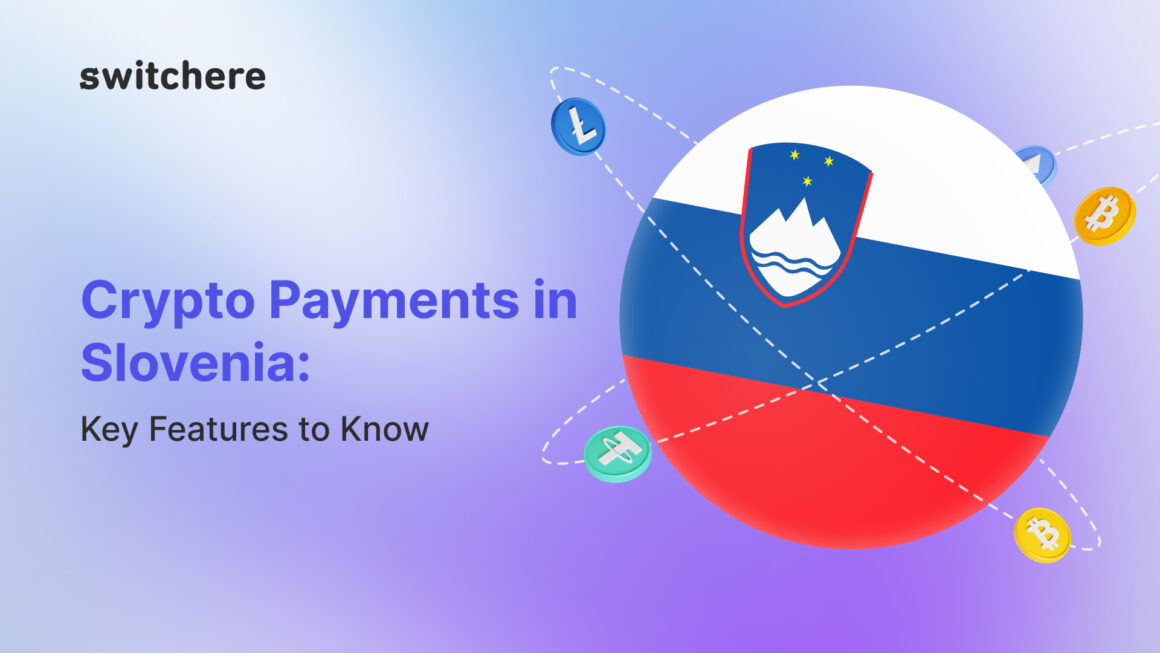Slovenia, a picturesque European nation, has witnessed a growing interest in virtual currencies, with an increasing number of business entities and persons examining the opportunities presented by virtual assets. This short article is devoted to the current status of virtual currencies in Slovenia, exploring the Slovenian regulatory system, licensing requirements, and popular crypto payment gateways operating on Slovenian territory.
Slovenian Regulatory Framework
The current status of virtual currencies in Slovenia is primarily governed by the Financial Instruments in the Market Act (ZTFI) and the Prevention of Money Laundering and Terrorist Financing Act (PMLFTA). These regulations provide the basis for overseeing crypto-related activities within the country. In turn, the Slovenian Financial Stability Board has issued guidelines pinpointing legal and operational requirements for business entities dealing with virtual currencies and crypto payments.
Virtual Currency Payments in Slovenia: A Growing Trend
Virtual currency payments are becoming very popular in Slovenia, with an increasing number of business entities accepting virtual currencies as payments for goods and services alike. Many businesses, including restaurants, hotels, and online retailers, now accept virtual currencies like BTC, USDT, EOS, etc., as a regular means of payment. This shift toward virtual currency payments has been promoted by the presence of user-friendly payment processors and wallet solutions, making it convenient for both merchants and consumers to use cryptos in Slovenia.
Licensing and Registration Requirements
To guarantee the orderly development of the virtual currency industry, Slovenia has implemented licensing and registration requirements for various entities involved in digital asset-related activities.
Virtual Currency Payment Gateways
Entities operating as virtual currency payment gateways in Slovenia are obligated to obtain a license from the Financial Administration of the Republic of Slovenia (FURS). The license certifies compliance with AML/KYC and CTF norms and directives.
Virtual Currency Exchange Operators
Online exchanges must register with the Slovenian Financial Supervisory Authority (FSA). This registration process thoroughly examines the firm’s security procedures, operational activities, and adherence to financial establishments.
Wallet Operators
The FSA oversees the company registration process of wallet operators, focusing on the need for cutting-edge security mechanisms to protect users’ digital assets.
Business Entities and Taxation
Slovenian tax authorities have also forged crystal clear rules on the taxation of cryptocurrency-related activities. Cryptocurrency TXs, including payments and trades, are subject to capital gains tax. However, Slovenia does not impose value-added tax (VAT) on the purchase of virtual currencies, which serves as a perfect stimulus for all crypto adepts and enthusiasts alike.
Major Challenges Regarding Virtual Currency Adoption
Concerns about fraud, virtual currency market manipulation, and the possible use of virtual currencies in illicit activities necessitate ongoing regulatory scrutiny. Additionally, aligning with broader European Union regulations is the number one priority to maintain cross-border consistency in the treatment of virtual currencies and blockchain-based products.
Looking ahead, Slovenia aims to solidify its standing as a crypto-friendly state further. Continued collaboration with international regulatory bodies and the introduction of innovative technologies, such as DeFi and Web3 solutions, will reshape the current virtual currency landscape in Slovenia.
Popular Crypto Payment Gateways in Slovenia
Below, you can find a selection of crypto exchange operators facilitating branded crypto payment gateways in Slovenia.

Bybit
Despite the fact that Bybit’s target audience resides in the Asian region, it is rapidly expanding its services to the European market. In fact, Bybit is a full-featured crypto exchange service provider for seasoned traders and institutional investors, operating in the crypto market since 2018. Nonetheless, it is more suitable for traders interested in large-scale trades. Additionally, the firm has its own NFT marketplace for buying and selling digital items.
Bitpanda
Contrarily, Bitpanda is located in central Europe, and it has been in the crypto exchange business for more than a decade. The fintech company is majorly focused on rendering crypto buy and sell services powered by high-tech security measures and API-driven solutions for its partners. Bitpanda is well suited for businesses due to its moderate pricing structure and fast settlements.
Switchere
Whatever the case, Switchere is a perfect option for all kinds of businesses wishing to accept and process crypto payments. First and foremost, Switchere is a regulated virtual asset exchange service provider and proper EU licensing and necessary permits. Second, the firm renders both B2C and B2C services, where ordinary people from more than 170 countries can effortlessly buy and sell all trending virtual cryptos, and businesses can integrate crypto payment solutions without any problems or delays.
With respect to business integration, Switchere offers an easy-to-use Crypto Payment Gateway, Fiat On-Ramp, NFT Checkout and many more services.
Conclusion
To wrap it up, Slovenia’s approach to regulating cryptocurrencies reflects a balanced commitment to innovative solutions and advanced fintech products. The adoption of clear licensing and registration requirements for crypto-related entities, coupled with favourable tax treatment, positions Slovenia as an attractive destination for businesses and individuals dealing with virtual currencies.
